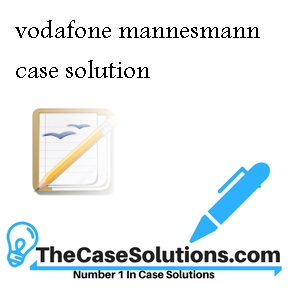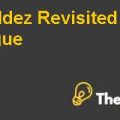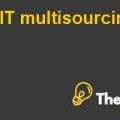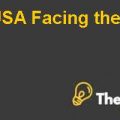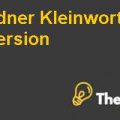What was the strategic and economic rationale for Mannesmann's acquisition of Orange? Did Mannesmann overpay for Orange?
The strategy of Mannesmann to acquire Orange was to become the leader in the telecommunication industry in the Europe because orange holds third position in the telecommunication industry. However, after the acquisition of Orange, he was also at number two, but he became the toughest competitor of Vodafone.
This strategy to acquire Orange resulted to make Mannesmann the leading mobile network and internet provider in Europe as a whole. The strategy was to get the synergy benefits from acquiring Orange. Both the companies were operating under the same industry and the same region as this acquisition provided benefit to get the share in other countries of Europe. The strategy was in favor of Mannesmann to get the sales in Europe and the next step was to become the World leader through other acquisitions. The decision largely affected Vodafone because Vodafone was with a strategy to expand in Europe through acquisition, but Mannesmann acquired it without any delay, this step was the step towards becoming the World leader in the telecommunication industry.
Mannesmann paid a premium of 17% over the prevailing rate of stock market of Orange at that time. The premium was expected because of synergy benefit, but the stock market did not recognize the synergy effect and in response the share price of Mannesmann reduced by 8% after the acquisition.
The decision to acquire orange at a premium price was rationale because the acquisition was with a view to become market leader and earn synergy benefits from such acquisition. The premium of 17% is acceptable due to the future benefits of the acquisition are expected to be more than 17% of premium prices.
Vodafone AirTouch proposed that each Mannesmann share would receive 53.7% Vodafone AirTouch shares, so that in aggregate Mannesmann shareholders would own 47.2% of the equity of the newly combined company. Describe the stock swap. As of 17 December 1999, what was the market value of Mannesmann's contribution to the combined company? As a Mannesmann shareholder, would you accept the current offer?
The market value of Mannesmann is $128.4 billion. The contribution to the combine company is the net value of the company’s equity is 129.8 billion after taking the impact of synergies (Appendix 1). After getting the premium price the net worth of its shareholders is $143.1 billion (Appendix 1). The Vodafone is a company that has shares listed on stock exchange, therefore after acquisition the shareholders can sell the shares at a price with a net worth of $143.1 billion.
As being the shareholder of Mannesmann, it is considered that there is no telecommunication company, which has resources to acquire Mannesmann and it is hardly impossible that it can get a price higher than the stock market price with 14% premium. The premium is only paid by the competitor that can get future benefits of sales growth and current benefit of synergy for cost savings. The price of Euro 350 per share is the price that cannot be paid by any competitor or any other company that is not operating under telecommunication industry because the price is high than the value of company through free cash flows and stock market price.
As being a shareholder of Mannesmann, the bid must be accepted because it is the right time to get the shares because of current benefit of premium price and future benefit of any combined growth that can flow to the entity after acquisition. The combination of these two big companies will result in the increase in the customer confidence that will ultimately increase the revenues. The monopoly situation can arise in Europe and USA, therefore Vodafone can charge higher prices for its customers and it can generate higher profits for the shareholders.Vodafone Case Solution
These two benefits are more than that 14% premium price because the future profits will also be shared by the current shareholders of Mannesmann; therefore the bid must be accepted without any delay. The shares of Vodafone will decline in the stock market in the first instant and then it will increase dramatically after reporting the combined earnings that are expected to be very high.
As a Vodafone shareholder, would you accept the proposed transaction?
As being Vodafone’s shareholder, the bid must not be accepted due to some of the reasons...............
This is just a sample partial case solution. Please place the order on the website to order your own originally done case solution.

